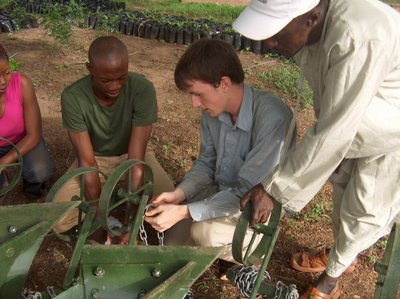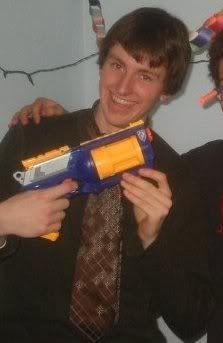For the past four days the entire office has been involved in a ‘voluntary’ workshop.
Despite the fact that everyone had to give up their weekends for the work, I have not heard a single complaint about it.
The workshop has been a great introduction to RAAP for me, showing me just how passionate and talented these people are at what they do.

REFLECT is a community development tool to help communities identify their development opportunities/issues and act on them. REFLECT stands for REgenerated Freirean Literacy through Empowering Community Techniques. It was started by Paulo Freire, a Brazilian Educator who spent two years researching how adult literacy could be promoted while increasing community participation in the development process. The result is a widely used methodology that is endorsed by major international NGOs such as OXFAM and ActionAid International.
There are two major components to RAAP’s use of REFLECT:
- Community Dialogue, Action, and Development
- Community members meet regularly for participatory analysis of community issues to identify concerns and to raise awareness using PRA/PLA Tools.
- REFLECT Committee meet to develop action plans for the development/implementation of development activities identify in REFLECT meetings.
- Literacy
- “Night Circle” literacy classes are held for all interested adults, in which reading, writing, and numeracy are taught in Dagaare (the local language). Advanced classes may progress to a secondary language (usually English)
The entire process is driven by facilitators, though REFLECT stresses that they do nothing other than simply facilitate.
It’s meant to be a completely participatory process in which the community is empowered, having full ownership of the issues.
The graphics that are developed to identify issues must be completely made at the site using materials available at the site (ie: no primers).
This allows a creative and active involvement of all participants, building on their knowledge while still respecting all local oral traditions, making it relevant to the local context.
The graphics I mentioned are all part of the “REFLECT Tool Box.”
They include maps (household, agricultural, community, etc), calendars (agricultural, health, gender workload, hunger & abundance, etc), matrices (crop, credit, household decisions, etc) and other tools such as guided/transect walks, problem trees, pairwise ranking, and cause/effect analysis.
There’s over fifty different ‘tools’ that a facilitator can use to try and bring to light issues and to encourage discussion on how to address issues.
I found it interesting to note that my NGO director often quotes Robert Chambers’ thoughts on the process and is known to say sentences like “you remember in the video when Chambers said...”
(Robert Chambers spoke at the EWB National Conference in
Ottawa in January and is now on EWB’s advisory board.)
Also, for anyone who is interested in the methodology, I have a copy of the workshop notes that one of my co-workers typed up.
If you want a copy just email me at
brynferris@ewb.ca.
The most valuable part of the training to me was the field practice.
During the four days of training we visited five different communities and facilitated the activities that they were running.
Not only did I get to see the methodology in action, but the experience of traveling to these remote villages and experiencing the people and culture was indescribably awesome.
I didn’t take my camera with me as I was afraid of cultural inappropriateness; I apologize for the lack of pictures to compliment the most interesting part.
However, more field visits will be underway next week, where I hope to bring a camera and write a proper entry about one of these amazing communities.



4 Comments:
It's good to finally here from you!!
Have you gotten used to spicy foods yet? :)
Boy...you write welll..
good to hear about your placement..keep up the good work.
Geeze Bryn, wear a t-shirt. You look altogether too warm! :)
Laura, I was thinking exactly the same thing.
I can only imagine; I'm whining about the burn I got the other day playing rugby - hehheh. I guess thats one of those 'me not having enough to worry about' kinda things.
Perspective. That's what we're talkin about.
Post a Comment
<< Home